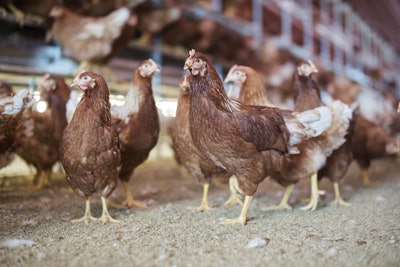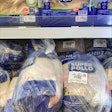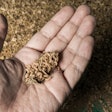
Might Britain be about to lose almost a quarter of its egg producers and 15% of its broiler farmers?
It would seem that this may be the case, as there would appear to a high degree of dissatisfaction across both industries, and a lack of returns has resulted in more calls for producers to be given greater support.
A survey by the National Farmers’ Union (NFU), an industry body for farmers in England and Wales, has found that 24% of egg producers and 15% of chicken meat producers were either unlikely or unsure if they would still be producing poultry meat beyond November 2025.
Key worries
The main reason cited by producers was insufficient returns, suggesting that their businesses have not been profitable.
The survey, conducted to inform the NFU’s lobbying activities, revealed a number of concerns common to both sectors.
These included the risk of avian influenza (AI), with 94% of egg producers and 92% of chicken meat producers saying that they were either fairly or very concerned.
Producers also are unhappy about what they see as unfairness in the supply chain, with 90% of egg producers and 76% of chicken meat producers saying that they were fairly or very concerned.
High levels of concern were expressed about energy prices and being undercut by imports.
The survey, which was conducted late last year, saw responses from 253 producers.
Soaring costs
Within the egg sector, feed costs have risen by 31% over the last two years, while electricity has risen by 35%. Salaries are up by 22%. Feed costs rose by the same amount for broiler producers over the period, while electricity was up by 41% and salaries rose by 20%.
The NFU is calling for greater fairness in poultry supply chains, and for poultry producers to be included in the U.K.’s Energy Intensive Scheme, which could see energy cots reduced by 15-30%. It also wants to see a long-term strategy from government to be set ahead of any future AI outbreaks.
According to the NFU’s poultry board chair, James Mottershead, the sector urgently needs support, certainty and fairness applied across the supply chain if it is to remain strong.
He added that there needs to be a change within poultry supply chains to ensure a fairer sharing of risk and reward. While the number of AI outbreaks had been minimal over the last winter compared to previous years, he continued, the sector should not its eyes off the ball.
Of course, the NFU’s findings are nothing new. Almost a year ago, industry association the British Poultry Council (BPC) warned that soaring costs, including feed, labor and fuel, were damaging the viability of the broiler sector and that production was shrinking.
In early 2022, the British Free Range Egg Association (BFREPA) warned that free range and organic egg farmers were considering a mass exodus from the industry, adding that new data had shown that scores of farmers were considering stopping production at the end of their current flock.
In late October last year, the U.K government announced that it would launch a review to increase fairness in the egg supply chain. This was followed in November by a call for a similar review in the broiler sector.
What is worrying about the NFU’s findings is that some 12 months on from the BPC’s warning, and almost two years on from that of BFREPA, the mood amongst British producers remains negative, and while some progress may have made in improving the lot producers, it would appear that this has been far too little.


















